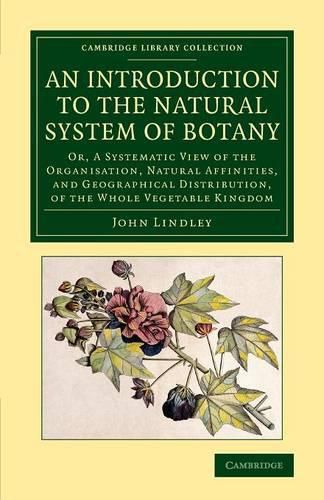Readings Newsletter
Become a Readings Member to make your shopping experience even easier.
Sign in or sign up for free!
You’re not far away from qualifying for FREE standard shipping within Australia
You’ve qualified for FREE standard shipping within Australia
The cart is loading…






Employed early in his career by Sir Joseph Banks, the botanist John Lindley (1799-1865) is best known for his recommendation that Kew Gardens should become a national botanical institution, and for saving the Royal Horticultural Society from financial disaster. As an author, he is best remembered for his works on taxonomy and classification. A partisan of the ‘natural’ system of Jussieu rather than the Linnaean, Lindley writes, in his preface to this 1830 work, that it was originally created for his own use, to avoid having recourse to ‘rare, costly and expensive publications’ available only in the libraries of the wealthy. His intention is to give a ‘systematic view of the organisation, natural affinities, and geographical distribution of the whole vegetable kingdom’, as well as of the uses of plants ‘in medicine, the arts, and rural or domestic economy’. The work is important in the history of taxonomy.
$9.00 standard shipping within Australia
FREE standard shipping within Australia for orders over $100.00
Express & International shipping calculated at checkout
Stock availability can be subject to change without notice. We recommend calling the shop or contacting our online team to check availability of low stock items. Please see our Shopping Online page for more details.
Employed early in his career by Sir Joseph Banks, the botanist John Lindley (1799-1865) is best known for his recommendation that Kew Gardens should become a national botanical institution, and for saving the Royal Horticultural Society from financial disaster. As an author, he is best remembered for his works on taxonomy and classification. A partisan of the ‘natural’ system of Jussieu rather than the Linnaean, Lindley writes, in his preface to this 1830 work, that it was originally created for his own use, to avoid having recourse to ‘rare, costly and expensive publications’ available only in the libraries of the wealthy. His intention is to give a ‘systematic view of the organisation, natural affinities, and geographical distribution of the whole vegetable kingdom’, as well as of the uses of plants ‘in medicine, the arts, and rural or domestic economy’. The work is important in the history of taxonomy.